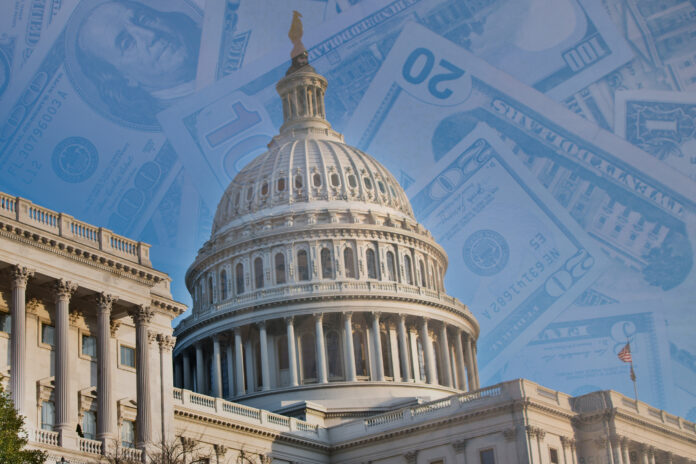
Today, the House of Representatives passed in a 220-213 vote an updated version of the Build Back Better Act (BBB, H.R. 5376), a $1.7 trillion reconciliation bill aimed at “human” infrastructure and the social safety net. Democrats are using the filibuster-proof budget reconciliation process to pass the BBB over Republican objections, just as they did to pass the American Rescue Plan (P.L. 117-2) in March 2021. The House passage of the BBB, following the chamber’s passage of the Infrastructure Investment and Jobs Act (known colloquially as the “BIF,” H.R. 3684) last week, shows that House Democrats are finally putting aside internal divisions to enact President Biden’s agenda before the end of the year. However, the bill faces a significant challenge in the Senate, where even one Democratic Senator could still derail the package.
The version passed today represents months of negotiation and trillions of dollars worth of compromise. Democrats’ moderate wing successfully slashed the bill nearly in half from its original $3 trillion price tag and pushed out progressive priorities such as a corporate tax increase, comprehensive immigration reform, an incentive program to push utility providers away from fossil fuels, free community college tuition and $40 billion for K-12 school infrastructure, among many other priorities. House progressives also backed off an earlier demand that the House pass the BBB before a five-year bipartisan highway bill known as the Infrastructure Investment and Jobs Act (IIJA, or the BIF, P.L. 117-58). However, what remains of the BBB is still transformative: MBS released 6 deep-dive pieces on significant sections of the bill which can be found here:
- Revenue and Spending Tax Provisions
- Energy & Environment Provisions
- Education and Labor Provisions
- Health and Public Health Infrastructure Provisions
- Housing and Community Development Provisions
- Agriculture Provisions
The House passed an updated version of the BBB originally released on November 3, (a section-by-section summary is here) adding only minor and technical changes as outlined here. The version approved today is pre-tailored to pass the Senate’s “Byrd Rule,” which restricts the Senate to passing reconciliation bills impacting tax or revenues. The Senate’s non-partisan Parliamentarian has the power to cut provisions from reconciliation bills that don’t pass the Byrd Rule; to avoid any last-minute surprises, the House pre-emptively changed the BBB to comply with Senate rules and asked the Parliamentarian to “scrub” the bill for any issues.
The House vote today occurred after the non-partisan Congressional Budget Office (CBO), released a new estimate of the bill’s cost. Moderate Democrats such as Rep. Stephanie Murphy (D-FL), a leader of Democrats’ conservative “Blue Dogs,” demanded the CBO’s non-partisan evaluation to ensure the BBB did not add trillions to the national debt. The CBO estimates the bill will increase the federal deficit by $367 billion through 2031: the bill would increase spending by $1.636 trillion over current levels, but also raise $1.269 trillion in new revenue (taxes and fees.) Further, the CBO score does not account for additional revenue that may come from improved Internal Revenue Service (IRS) revenue enforcement and collections included in the BBB. The U.S. Treasury Department has estimated that the IRS provision would increase net revenues by $400 billion over 10 years, bringing the bill close to Democrats’ promise that the BBB would be fully “paid for.”
Now, the battle turns to the 100-member Senate. Democrats need all 50 of their party’s Senators to hold together, plus tiebreaker vote Kamala Harris (D-CA), to pass the BBB. Moderate Democratic Senators, such as Senator Joe Manchin (D-WVA), Senator Kyrsten Sinema (D-AZ), and other Democratic colleagues are expected to seek revisions to the bill that will, potentially, reduce the cost and narrow the scope of any final measure that might pass the Senate. The exact timing for a Senate vote, according to Senate Majority Leader Chuck Schumer (D-NY), will depend on the Senate’s further review of the bill for compliance with the Byrd Rule as well as final evaluations of the bill by CBO. The bill is now headed to the Senate where deliberations could take weeks or even months. This bill will be considered amidst other December battles over government funding and the debt limit that will take up valuable Senate floor time. As this legislation continues moves through the legislative process, the MBS DC team will keep you up-to-date.





